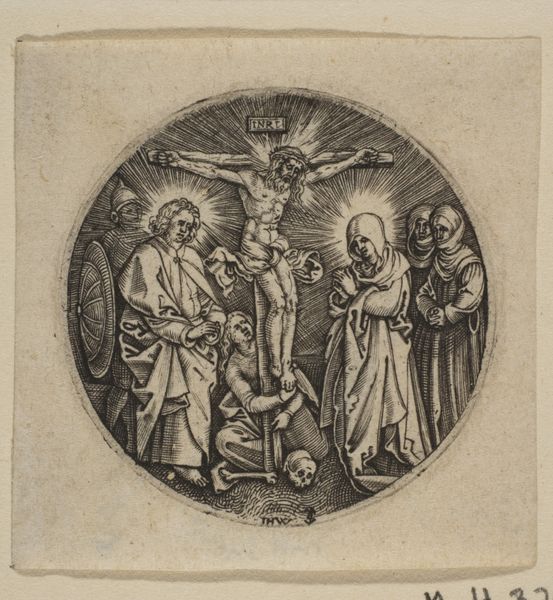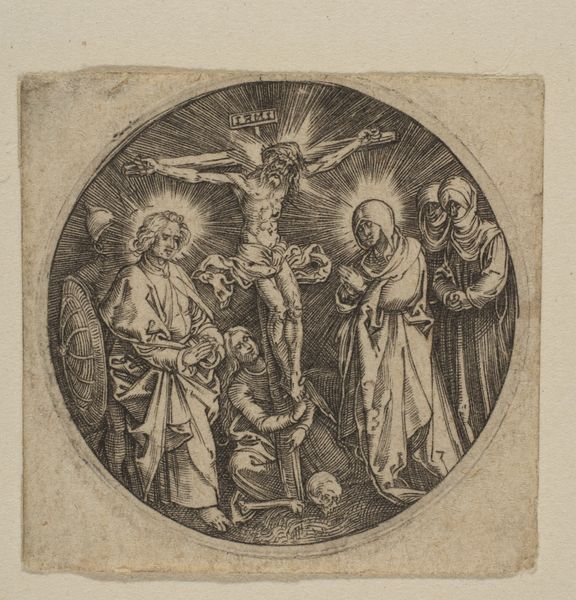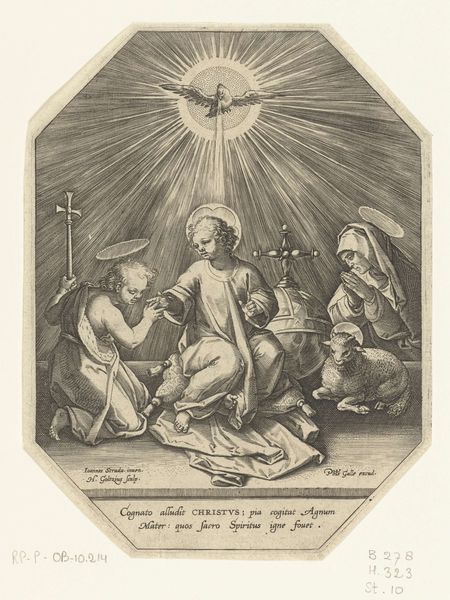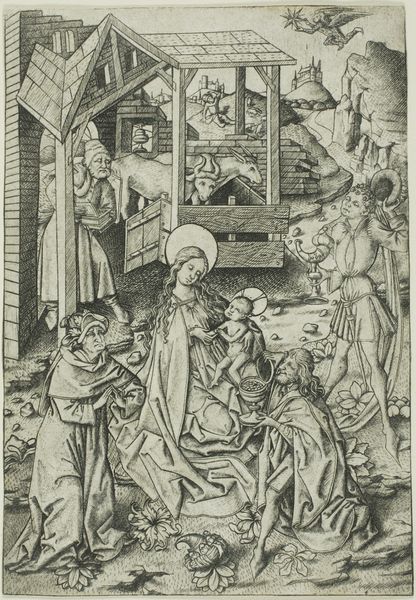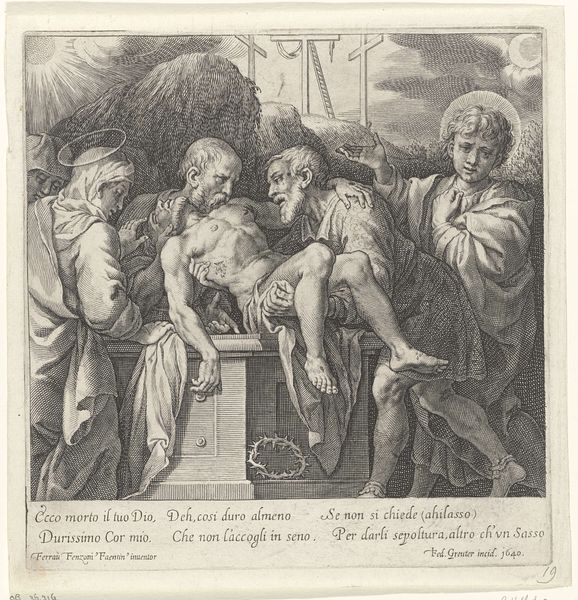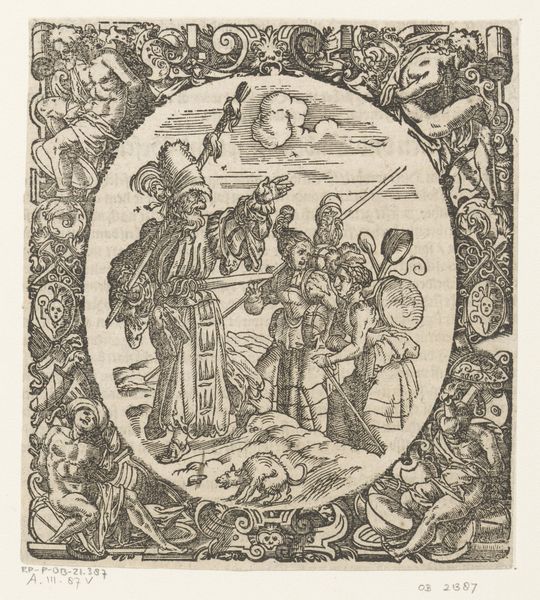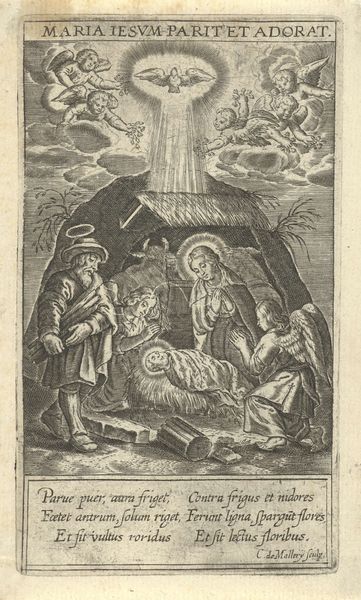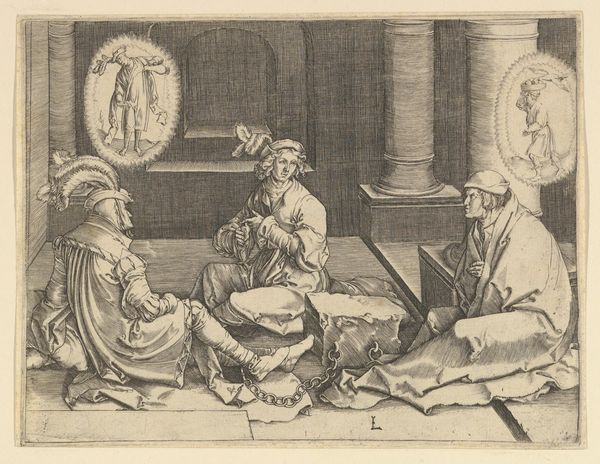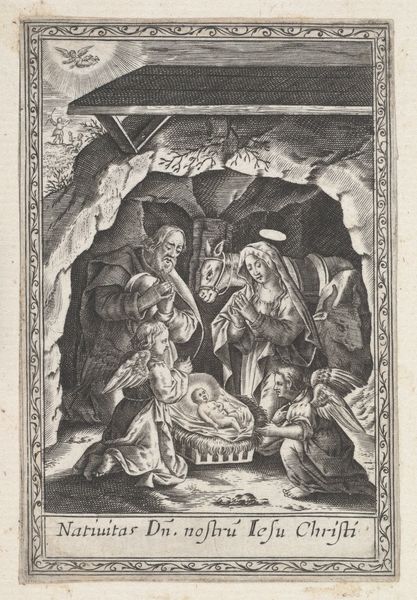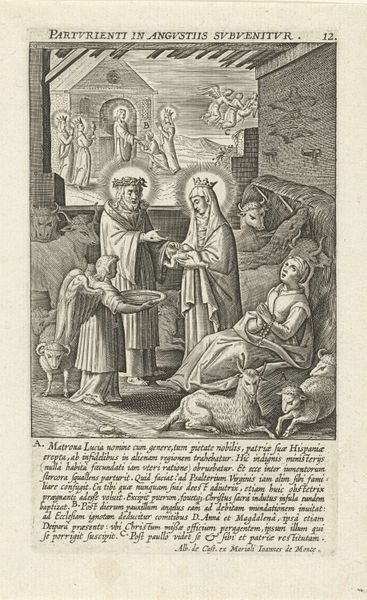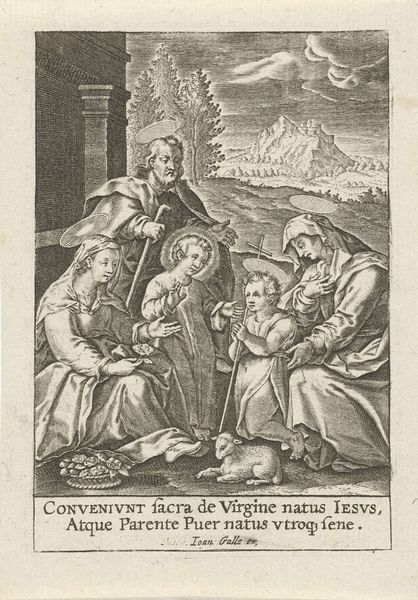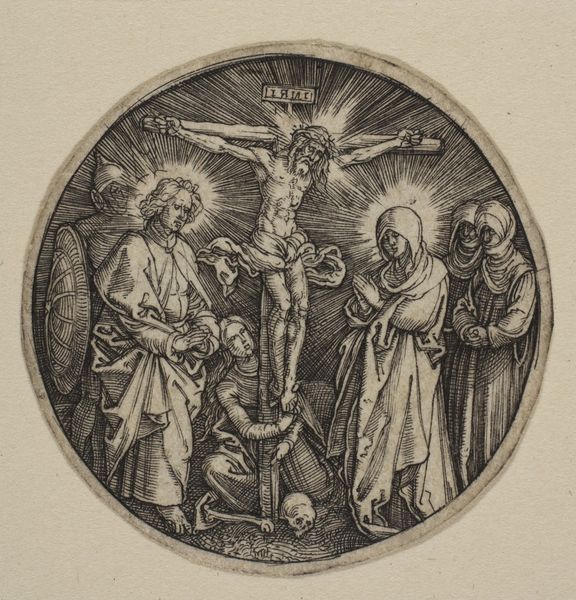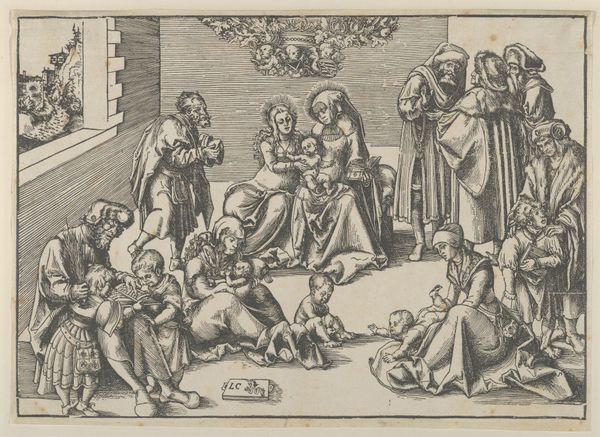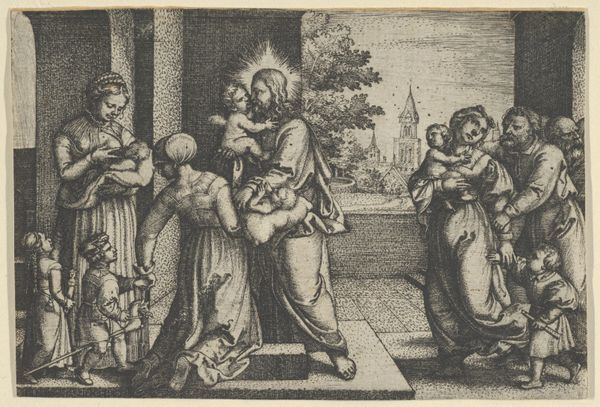
drawing, print, engraving
#
drawing
#
medieval
#
narrative-art
# print
#
figuration
#
crucifixion
#
engraving
Dimensions: Sheet: 3 7/16 × 2 3/4 in. (8.8 × 7 cm)
Copyright: Public Domain
Carl Kappes made this small engraving of the Crucifixion, its date currently unknown, by cutting lines into a metal plate. The image’s strength arises from this direct, physical process. Look at the varying densities of lines, which create the illusion of light and shadow. The engraver’s hand was crucial, guiding the burin to achieve these effects. This wasn’t just about technical skill; it was about sensitivity to the narrative. Prints like this played a vital role in disseminating religious imagery. They were relatively inexpensive, making them accessible to a broad audience. Consider the labor involved: from the mining of the metal, to its processing, to the artistry of the engraving itself. It reflects a complex web of production and consumption. By understanding the material and the making, we gain a deeper appreciation of the image’s cultural significance. It challenges the divide between art and craft, reminding us that meaning is embedded in every stage of production.
Comments
No comments
Be the first to comment and join the conversation on the ultimate creative platform.
